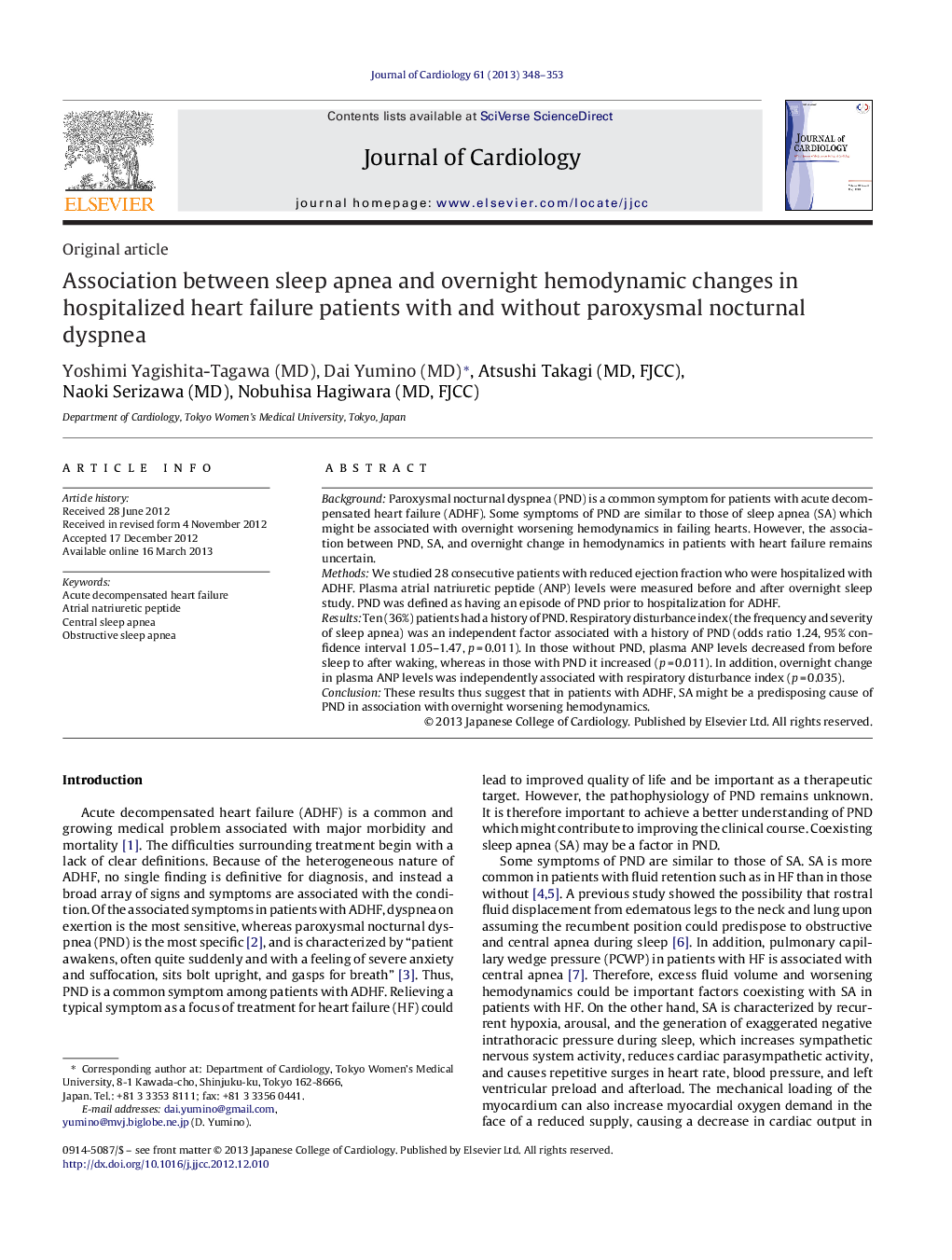| Article ID | Journal | Published Year | Pages | File Type |
|---|---|---|---|---|
| 5984161 | Journal of Cardiology | 2013 | 6 Pages |
BackgroundParoxysmal nocturnal dyspnea (PND) is a common symptom for patients with acute decompensated heart failure (ADHF). Some symptoms of PND are similar to those of sleep apnea (SA) which might be associated with overnight worsening hemodynamics in failing hearts. However, the association between PND, SA, and overnight change in hemodynamics in patients with heart failure remains uncertain.MethodsWe studied 28 consecutive patients with reduced ejection fraction who were hospitalized with ADHF. Plasma atrial natriuretic peptide (ANP) levels were measured before and after overnight sleep study. PND was defined as having an episode of PND prior to hospitalization for ADHF.ResultsTen (36%) patients had a history of PND. Respiratory disturbance index (the frequency and severity of sleep apnea) was an independent factor associated with a history of PND (odds ratio 1.24, 95% confidence interval 1.05-1.47, p = 0.011). In those without PND, plasma ANP levels decreased from before sleep to after waking, whereas in those with PND it increased (p = 0.011). In addition, overnight change in plasma ANP levels was independently associated with respiratory disturbance index (p = 0.035).ConclusionThese results thus suggest that in patients with ADHF, SA might be a predisposing cause of PND in association with overnight worsening hemodynamics.
